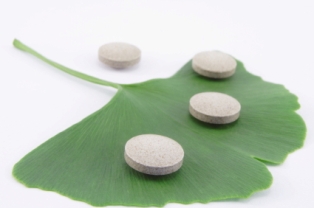Ginkgo Biloba Baloney?
Media Pounce on Ginkgo Biloba’s ‘Ineffectiveness’

Latest study on ginkgo biloba says it's ineffective in preventing cognitive decline. But why aren't the media reporting about the studies that say it works? Did they forget?
So have you heard? The ginkgo biloba supplement you’ve been taking for years now—turns out it’s useless. That’s right, that herb with the funny name, how it’s supposed to stave off cognitive decline—it’s bunkum. Nothing but claptrap peddled by the natural health industry.
Or so the media want you believe.
The study certainly sounds convincing. It took place over an eight -year period, with over 3,000 aging men and women (72 years of age and older) taking either a placebo or 120 milligrams of ginkgo biloba every day, twice a day.
As published in the Journal of the American Medical Association, there was no difference in the rate of cognitive decline between those taking the ginkgo biloba extract or those taking the placebo.
Nothing. Nada. Zilch.
The media loves negativity. It’s what gets eyeballs to the television sets. It’s what gets people “mad as hell.”
A good friend of mine did his Master’s thesis on media bias, focusing his attention on whether or not the media had a more conservative bent or liberal bent to it.
While he found some evidence suggesting that there was an ideological bent to the way in which certain networks reported stories, his main conclusion was that the media loved to focus their attention on the negative. For example, the media would spend lots of time on bad unemployment reports compared to the time they’d spend on unemployment reports where jobs were added to the economy (e.g. more time devoted to the economy segment, more likely to be a top story, more expert analysis devoted to the segment, etc).
In short, the old “if it bleeds, it leads” line has some truth to it. And the same standard applies to health news.
Folks, ginkgo biloba has been taken as a memory enhancer for over 30 years. And study after study has shown it to be effective in staving off Alzheimer’s disease.
One such study—reported in the very same Journal of the American Medical Association—found that ginkgo biloba extract can stabilize and improve people’s mental functioning in people taking at least 100 to 200 milligrams three times per day. A study performed 20 years later confirmed that.
Now, it’s possible that these studies were smaller in scale, thus the findings may not be as reliable as a study with 3,000+ people. But if you’re looking for a larger study, look no further than one that reviewed 29 studies with over 2,400 aging men and women participating. And just like this most recent report, it was double blind, placebo controlled and randomized.
Their findings? That the “chronic administration (of Ginkgo extract) improves selective attention, some executive processes and long-term memory for verbal and non-verbal material,” according to the study’s lead author, Dr. Reiner Kaschel, a clinical neuropsychologist at the University of Osnabrueck in Germany.
Yet did the media bring up these countering studies? Isn’t it the media’s job to bring you both sides of the story so that you can determine for yourself what’s true and what isn’t?
The bottom line is this: Ginkgo biloba works for me and for thousands of others. If it works for you, don’t let one study steer you into believing that you’ve been hoodwinked. Ginkgo works for some, for others it doesn’t. Try what’s best for you (e.g. Coenzyme Q10, Acetylcholine, Acetyle-L-carnitine, Boron). Don’t let the media decide what’s best for you.
Sources:
medicalnewstoday.com
news.xinhuanet.com
msnbc.msn.com
Balch, Phyllis A. “Prescription for Nutritional Healing.” 4th Edition. 2006. Avery: New York
Related Posts
No related posts.
 
|
Enjoy this article? We guarantee your privacy. Your email address will NEVER be rented, traded or sold. |
Visit my new site: Self Help On The Web
 |
 |
Posted: January 1st, 2010 under Brain Health, Ginkgo Biloba.
Tags: Ginkgo Biloba, ginkgo biloba benefits, ginkgo biloba extract, ginkgo biloba supplements






